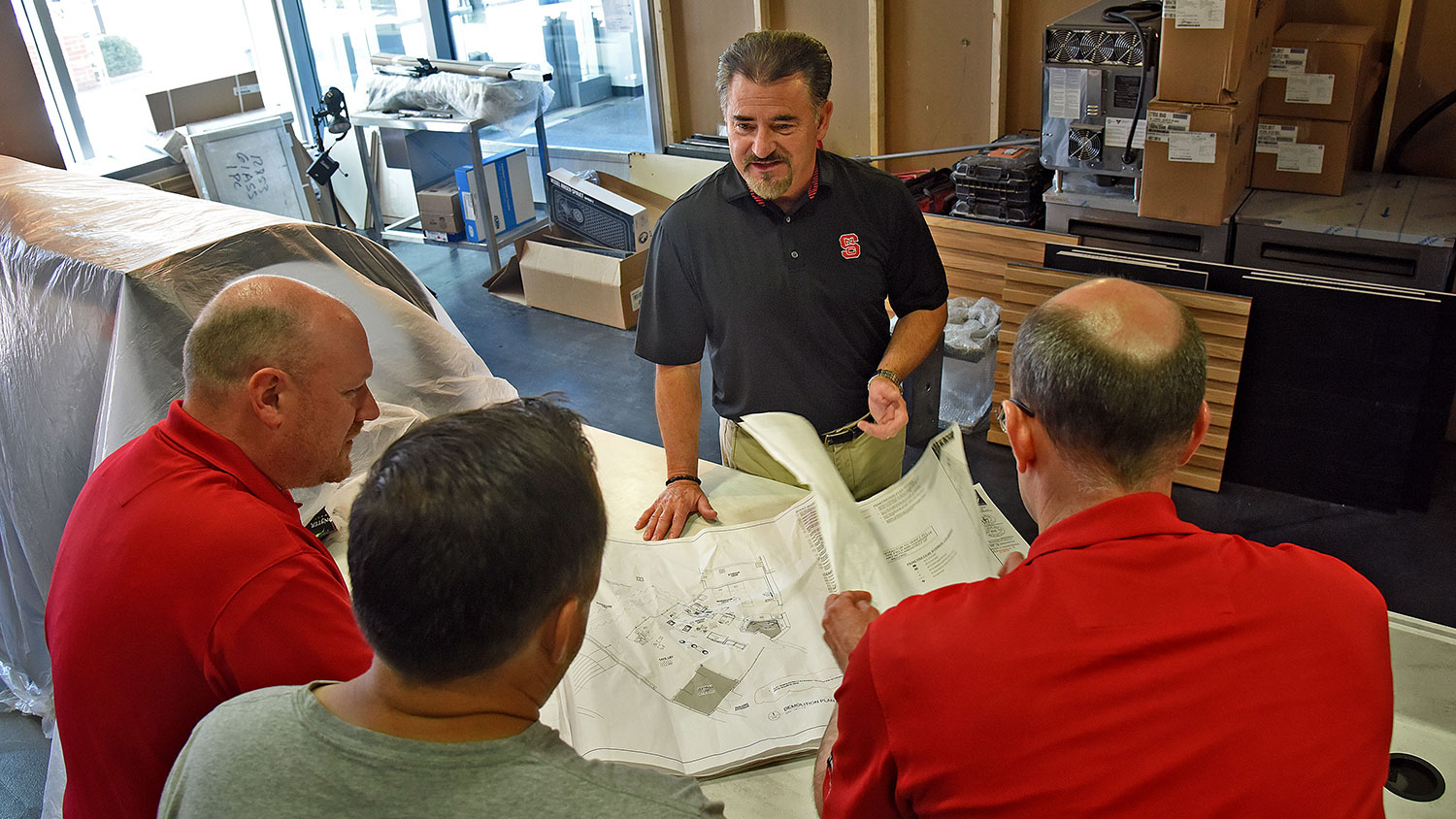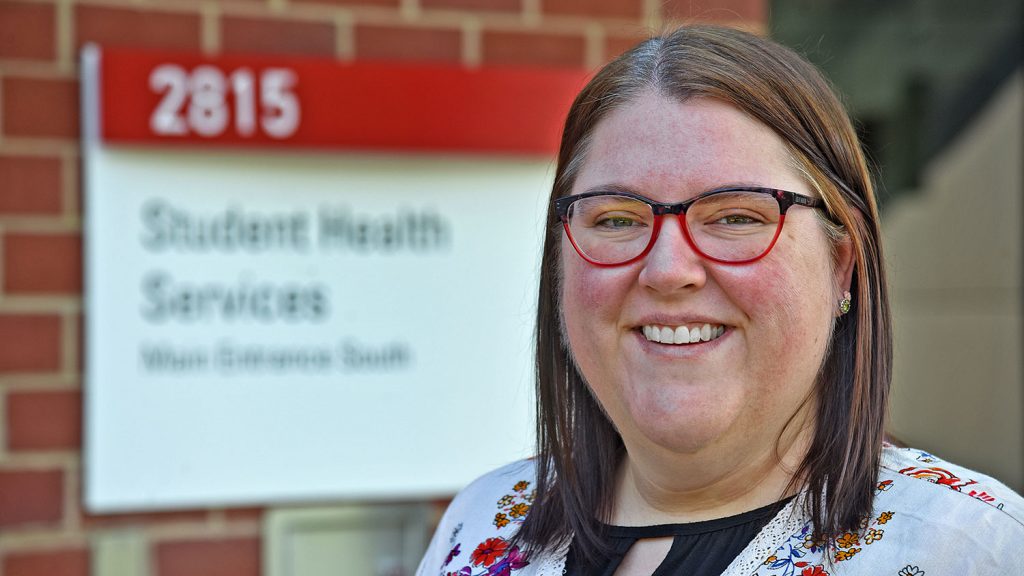Learn a New Skill With a Class at McKimmon
The center offers Google and Microsoft tutorials, notary courses and other classes that can help faculty and staff progress in their careers.

Of all the educational spaces on campus, the McKimmon Center is the one place where students of smartphone photography can brush shoulders with budding QuickBooks experts and professionals learning about HVAC maintenance can walk past a room full of people working on their leadership skills.
Those are just a few of the hundreds of classes available to faculty and staff at the center. There’s something for everyone, says Chip Futrell, the interim vice provost for continuing education.
“I do want everybody on campus to turn to us for their education needs,” he says.
Faculty and staff can take classes to enhance skills for their current roles or with an eye to moving into a new position. Or, as in the case of Jimmy Wright, to gauge whether they are useful for their own employees. The director of operations and planning for Campus Enterprises enrolled in a construction management course earlier this year to see if it would benefit his own staff. Wright already has a background in the subject, but he found the course helpful.
“I think that it refreshed some things that I already had,” he says. “I think even for me it was very beneficial because times and methods are always changing. I think it also gave me a new insight into things that are being done differently.”

Wright’s course consisted of six daylong classes over six weeks, but others vary in length and time of day. Ashley Cates, an administrative support specialist in Student Health Services, took a notary course in May that comprised two classes that ran 6-9 p.m. with a test to take afterward.
“It was really convenient because it was after work,” she says.
The center offers classes during and after business hours and occasionally on Saturdays. Many classes are also available online, including technology and computer classes, such as Configuring Windows Devices and HTML Essentials. Those kinds of classes are useful even for jobs that don’t require much technical know-how, Futrell says.
“The technology courses that we offer can be used by anybody in just about any job,” he says, pointing out that most people on campus use Microsoft or Google programs. “There are classes that are very, very broad-based that can be used by people in so many different jobs.”
Faculty and staff are eligible for discounts, although their departments may choose to pay for classes. Units should use interdepartmental transfer to pay for registration, Futrell says. Some classes offer diplomas or certificates upon completion, and one project management class counts for credit toward certification from the international Project Management Institute. Cates received a certificate from the Department of the Secretary of State when she completed her notary course. She says she enjoyed her classes, which were taught by a state-certified notary.

“It was nice because it was a very open format, so you didn’t feel uncomfortable having to ask a question,” she says.
Wright, who has taken multiple classes through McKimmon during his 16 years at NC State, praised the construction management course. A daylong class once a week or so fit into his schedule, he says. The curriculum was thorough, with specialized instructors covering topics such as financial management and legal matters. He says the 50 or so people in the class came from different professions and that it was helpful to hear their varied experiences and perspectives. He plans to get one of his staff to take the course next year.
Wright also encourages all university faculty and staff to try a class at McKimmon.
“I think they do a good job with getting people in, and then the atmosphere is good,” he says. “The continuing education group is doing a good job.”
If anything, Wright says, the McKimmon Center should consider expanding the class offerings. Futrell says the center regularly evaluates the courses it offers and adjusts based on demand, updates to technology and whether the class is available elsewhere locally. The center will also call other universities and ask how classes are faring there. Futrell says he tries to strike a balance.
“On the one hand you want to be on the cutting edge; on another, you want to make sure that there’s enough demand to offer a class,” he says. However, he always welcomes suggestions.
“If there’s something that we don’t offer, then let us know.”
- Categories:


